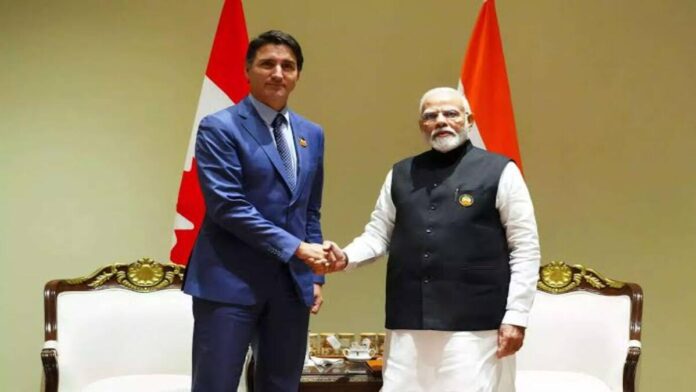In response to what it claims are “security threats” against Canadian diplomats, India has blocked visa services for Canadians, increasing a spat between the two nations after Ottawa accused New Delhi of possibly being responsible for the murder of a Sikh separatist activist on its grounds.
In a message to Indian stock exchanges on Thursday, BLS International, which manages visa applications for Indian citizens in Canada, stated that visa services “have been suspended until further notice.”
The letter, which was issued to the Bombay Stock Exchange, the National Stock Exchange of India, and the Metropolitan Stock Exchange, stated that Indian visa services in Canada had been discontinued until further notice “due to operation reasons” as of right away, or as of September 21, 2023.
Prior to this, BLS International claimed on its website—citing a notice from the Indian mission—that India has stopped providing visa services to Canadians as of Thursday.
On Thursday, the notification was briefly taken down before it abruptly reappeared.
According to India’s Ministry of External Affairs, “security threats” to the Indian High Commission and consulates in Canada prompted a temporary suspension of all types of visa issuing.
“The issue is of incitement of violence, the inaction by the Canadian authorities, the creation of an environment that disrupts the functioning our high commission and consulates, that’s what’s making us stop temporarily the issuance of visas or providing visa services,” the ministry’s spokesman, Arindam Bagchi, said.
“We have always believed that it is the host government’s responsibility to provide security,” he told reporters in New Delhi on Thursday.
The announcement came after India’s foreign office issued a severe travel warning on Wednesday, asking its citizens to exercise caution in Canada due to “politically condoned hate crimes.”
A few days prior, Canadian Prime Minister Justin Trudeau stated that authorities were looking into “credible allegations” of a connection between “agents of the government of India” and the masked men’s June shooting death of Sikh Canadian citizen Hardeep Singh Nijjar.
The claims have been vigorously refuted by New Delhi, which has called them “absurd and motivated.”
Canada has allegedly offered “no specific information” to corroborate Delhi’s alleged participation in Nijjar’s death, according to India’s foreign minister.
The ministry’s spokesman, Bagchi, added, “Let me also point out that from our side, very specific evidence of criminal activities by individuals based in Canada has been shared with the Canadian authorities on a regular basis but has not been followed up on.”
Bagchi stated that he anticipates a decrease in Canada’s diplomatic representation in the nation.
Trudeau urged India on Thursday to collaborate with Canada and “allow justice to follow its course.”
At a news conference held at the Canada Mission to the UN, Trudeau told reporters, “There is no doubt that India is a country of growing importance and a country that we need to continue to work with not just in the region but around the world.”
Canada, he said, “is not looking to provoke or cause problems,” but he emphasised “the importance of the rule of law.”
An embarrassing split between important allies of the United States is now possible as a result of Trudeau’s allegation, which has caused both India and Canada to expel top diplomats in reciprocal measures.
Nijjar was a vocal proponent of the establishment of Khalistan, a separate Sikh nation that would incorporate portions of the Punjab state of India.
The government of India considers the Khalistan movement to be a threat to national security and has made it illegal. The Unlawful Activities (Prevention) Act (UAPA) of India lists several organisations linked to the movement as “terrorist organisations.”
Nijjar’s name appears on the Home Ministry’s list of UAPA terrorists and in 2020, the Indian National Investigation Agency accused him of “trying to radicalize the Sikh community across the world in favor of the creation of ‘Khalistan,’” adding that he had been “trying to incite Sikhs to vote for secession, agitate against the government of India and carry out violent activities.”
According to local police, he was gunned down in his truck in June by two masked killers outside a Sikh temple in Surrey, British Columbia.
The Indian National Investigation Agency accused Nijjar in 2020 of “trying to radicalise the Sikh community across the world in favour of the creation of “Khalistan,”” adding that he had been “trying to incite Sikhs to vote for secession, agitate against the government of India, and engage in violent activities.” Nijjar’s name is on the Home Ministry’s list of UAPA terrorists.
He was shot dead in his truck in June by two masked assailants outside a Sikh temple in Surrey, British Columbia, according to the local police.




